Fahrenheit
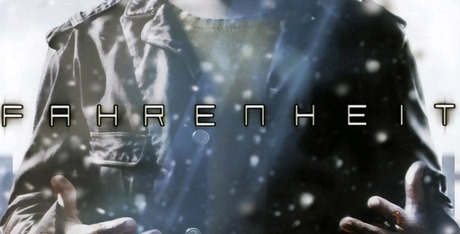
| a game by | Quantic Dream SA |
| Platform: | PC (2005) |
| Editor Rating: | 7/10, based on 1 review, 8 reviews are shown |
| User Rating: | 8.7/10 - 9 votes |
| Rate this game: | |
| See also: | Point-and-Click Quests, Christmas Games, Games Like Detroit Become Human, Games Like Heavy Rain |
So Is It a brave new chapter in the lost art of interactive storytelling? An amalgam of filmmaking and gaming in a single package? Is David Cage the games industry's answer to Quentin Tarantino? Are the annual Oscars going to have to open a new category for Best Virtual Screenplay In A Non-First-Person Shooter? And will it lead to games finally being given proper, gravelly-voiced, "In a world... trailers, red carpet opening night premieres at prestige branches of Game or HMV, and developers being hounded by paparazzi as they revel in their new-found fame and fortune by snorting huge lines of cocaine from penthouse hotel suites packed to the gills with girls and agents?
Good questions all and we can only guess at the answers. These are, after all, dark times. The suits are on the march, the audiences have been targeted with laser death ray precision, everything has 'attitude' and 'respect' and franchisable characters and it's a genuine miracle that something like Fahrenheit can even get made.
Dark Days
The adventure game market died a horrible death years ago, trampled to a bloody pulp in the mad rush towards FPS nirvana If you weren't carrying an oversized gun and mowing down waves of bad guys like an '80s era Arnie in the throes of a heavy LSD-inspired panic attack, you might as well forget your chances at retail, my friends. LucasArts learnt the lesson and learnt it well, entering a grim, yet profitable era of Star Wars exploitation instead.
But not for Fahrenheit's creator, David Cage. Shrewdly, he realised that the trouble with point-and-click adventures was the 'point-and-click' part. People still wanted the stories, they just didn't want to have to 'Get Sword' and 'Use Sword On Giant Chicken'. So he set about hiding them, dressing them up in different clothes and comedy moustaches and hoping people wouldn't catch on. Nomad Soul, his first toe in the waters at Quantic Dream, was a beautiful piece of misdirection. Take the traditional adventure mechanics and hide them in a GTA-style world. It almost worked too, but for most Nomad Soul is a hidden game, a gem waiting to be discovered, never quite getting its moment in the sun.
Art Attack
Now Fahrenheit, and he's at it again. For all the talk of this being a new dawn in the age of interaction, what we're dealing 'with is an old-school adventure game with a different interface. Well I'm on to you Cage, I know what you're up to. But have no fear, your secret's safe with me. Hell, ffm practically encouraging you to keep at it! Yes sir, let's show these Iiat-f***ers what some goddamn men of vision can do when let loose! Fahrenheit is a work of art dammit! And art needs to be respected, lest it creeps right up on you and bites off your testicles when you're not looking.
Keep It Licht
But is it a game? No. It's a story that you play through. It often suggests that you have the freedom to go where you want and do what you will, but in truth it's cleverly constructed to continually channel you along a particular path, a necessity for the plot to unfold.
There are moments of absolutely sublime design work that hide this: multiple options; scenes that let you explore alternative character usage, and moments that show the plot from cop and killer perspectives at the same time - leading to some brilliantly tense ticking clock moments and 24-style split-screen action, which veers just to the right side of being an over-used gimmick. So the fine details change with each new play through a chapter, but the overall story will keep heading towards the ultimate conclusion. Even here you can find at least five different ways to reach one of the multiple end sequences - end sequences that for once all seem to have had as much sense of resolution put into them as each other (although several of the secondary characters did deserve a better send off I felt). If there is to be a sequel, there's definitely more potential in following on from one of the supposed 'failed' endings than the 'correct' conclusion.
You'll have noticed that I'm deliberately not giving away any of the plot. Let's get that clear right away. Fahrenheit is completely plot-driven and to reveal anything except the basic premise (already revealed in previous issues, or by playing the demo on this month's cover discs) would completely ruin your own experience. Suffice to say, what starts out as an intriguing murder thriller soon spirals outwards to encompass everything from The X-Files to The Matrix to The Terminator. even to Silence Of The Lambs and Hitchcock.
Rhythm Method
Incredibly. Cage has taken an almost unprecedented step in game character development by exploring each of the main characters' personal lives and private flaws. Hence we have playable domestic arguments, phobias about the dark and heights, tender love scenes, exploration of depression and anxiety, all interactive (even the sex!) and all running alongside the main plot In that sense alone, Cage is pulling off his goal of creating a near-film quality emotional experience that genuinely makes you care about the fate of these people as they grow and change. A staggering achievement considering that most Hollywood scriptwriters these days seem incapable of producing anything beyond mere ciphers to tie their over-blown action sequences around. For once it seems as though games are maturing while films are going backwards. Hoorah for us!
Enunciation
Helping this is the acting. It was always going to be asking a lot for the voice actors to get us to see past the Mafia-style dead-eyed mannequins that are used for 3D models (although there has definitely been some improvement in facial expression animation since then), but they've done it. This is top quality work and combined with the realistic dialogue serves to make Fahrenheit's script one of the most absorbing ever written for a game. sucked in like an industrial vacuum almost from the start and as the layers of plot unfold you can't help but play on for just one more scene to see where it leads.
Simple Simon Says
Which just leaves the actual 'gaming' part of things I suppose. As I said earlier, this isn't really a game in the traditional sense. Sure you get to walk around each location (some with more freedom than others), and in some places the interface is spot on. Conversation trees that give you limited time to choose a question add to the tension - during vital interrogations, for instance.
But the action sequences have one slight flaw in them - and by action I'm referring to almost anything from hanging from a helicopter to playing the guitar. Mostly, you have a rhythm action thing to contend with. Follow the flashing lights with your arrow and WASD keys to successfully negotiate a an occasional Track And Field style left-right button bashing for more strenuous ctivities. The only real problem with all this is that your concentration is so focused on watching the mini-game .f interface that you often miss the on-screen action you're performing as a result, really only seeing it through your peripheral vision In some places though it has been used in an inspired fashion. Question a suspect, for instance, and if you follow the lights correctly while he answers, you'll observe greater details and be given better clues to follow.
What impresses most about all this is how everything ties together, despite the multiple choice routes and the multi character control. This could easily have been a sprawling half-baked mess of Lucasian proportions. Luckily, Cage seems to have had his head screwed on properly for most of the planning stages and there are very few scenes that leave you feeling anything less than satisfied with their construction. Nothing feels superfluous. Everything has a point. Tight. Sculpted. Well-crafted scriptwriting.
Old And New
OK, let's wrap things up. Yes there are faults. Certainly, the graphics engine can at times look somewhat basic compared to the delights of Source et al. Some animation and motion capturing is superb, especially in terms of background atmosphere (an important and often overlooked aspect of creating an absorbing world). But in terms of texturing you'll wonder if this is last ye technology at work. You can blame the prolonged development time due to publisher switching if you like.
And yes, sometimes the old adventure game irritants crop up - like having to stand in exactly the right spot to activate an interaction, or needing redundant player input (getting out of a bed can take three pointless motions of the mouse, for instance).
The thing is, none of that matters. The story more than makes up for any minor deficiencies and in an experience like this, the story is everything. Fahrenheit is brave - a combination of storytelling and interaction that hasn't really been seen since around the early Monkey Islands. And it is worth every penny. It deserves your attention and deserves to act as a template for a new genre of interactive fiction. And Cage deserves a BAFTA or a Golden Onion or whatever they give in France.
The future's in all our hands now and it's a terrible responsibility. First, you need to get up and buy this damned thing. Buy it, play it, enjoy it, then demand more. Grab them by the lapels and threaten to gouge out their eyes unless we get more like it. Or at least be vocal in your praise. Write letters to magazines, post opinions on web forums, organise marches in public parks, anything to get the grapevine buzzing.
Second, Atari needs to stump up the cash and give the man and his team a decent engine to play with. Imagine these graphics if Quantic had used Source or Unreal Engine 3? Finally, and here's the rub, Cage needs to get back to work and quick. Sequel, follow-up, whatever. But strike while the iron is sizzling and the stock is on the up. Only, this time, don't be afraid to up the challenge factor. Hell, we don't mind having to think from ti
Download Fahrenheit

System requirements:
- PC compatible
- Operating systems: Windows 10/Windows 8/Windows 7/2000/Vista/WinXP
Game Reviews
The adventure game is dead. You might be surprised to hear me say that. Not entirely. Because I'd done my homework and discovered that David Cage, head of Quantic Dream and creator of The Nomad Soul, likes to do things differently. In his debut, the Bowie-fuelled Gallic adventure, he stuck fighting, shooting and adventuring into a big pot, stirred furiously and ended with a dish that tasted like nothing we'd ingested before. The words engrossing', flawed epic' and outrageous sexism' were bandied about in the review (although strangely the latter point was seen as a negative). The overriding opinion was that this was the future of the adventure game. Until now.
So what is Fahrenheit? It's probably easier to start off with what it's not. It's not a point-and-click adventure (they're dead), it's not an RPG (they're too timeconsuming) and it's not an interactive movie. We're not making Dragon's Lair here... OK David, calm yourself, no-one suggested you were. It's actually a psycho-thriller, he states.
Which doesn't help an awful lot because it's not really a genre that we're used to seeing outside of the cinema. So, David, in a single sentence, can you explain what Fahrenheit is? Erm, no." Try harder. It's an interactive experience where the actions of the player really affects the way the plot unfolds. Thank you.
Qu'est Que C'est?
It's modern-day New York. Seemingly random murders are being committed by everyday Joes, with no apparent rhyme or reason. Nutters, obviously. Except you play one of them, Lucas Kane, and it's your job to uncover the truth.
But that's not all. New York is inclemently cold and getting colder by the day. Why? Your job again. I'm afraid. And just to complicate things further, you also play the part of a policewoman, Carla Valenti, charged with solving the rash of murders that have erupted on the face of New York City. Time to take a deep breath. So, you play the hunter and the hunted. How does that work then? Time to fire the game up...
Bog Life
You're sitting in a public toilet, contemplating life, when an old man walks across the room and washes his hands. Seemingly losing control over your body, you leave the confines of your cubicle, pull a knife out of your coat and plunge it into the man's heart three times, t before carving cabbalistic marks on your forearms. You then come round with more than a shudder of horror and try to work lout what the hell's just happened. What do you do next?
Run outside, oblivious to the fact that you're carrying a knife, covered in blood and probably more than a bit wild-eyed? Or take a few seconds to collect your thoughts, wash yourself, hide the knife and body and escape without drawn attention to yourself? Come on, you1 playing against the clock here.
From this point on the gamTis played m real-time. If you're recoiling at the. thought of revisiting the travesties of the '90s, so-called interactive movies' like Phantasmagoria Harvester, then relax. As David explains: In Fahrenheit, there's no pre-rendered stuff - everything is done in real-time and we've tried to make it all interactive. Even when you're making really simple actions like pushing a door, you're actually pushing a door yourself. That probably needs a bit more explanation and although it's almost impossible to describe without playing the game, these are the basics of the game mechanics.
Played out in full 3D, there's no visible interface as such. Instead, all your actions are supposed to be intuitive: so, if you move towards a door and stretch an arm out, you'll push the door open or closed. Every action you make is supposed to feel as natural as possible. Initially conceived on a PC, the control system has been changed to accommodate two analogue sticks, and David admits that he's still not sure how to maximise the experience using conventional PC controls.
Hide And Seek
But enough of the technicalities for now. I When you've done your doings and scWperecHhe action switches to Carla the arrives at the scene of for clues. And I know what to say next. If you've just lidddh the knife, then surely you'll know exactly where to look for it?' But no, because if you're astute enough in the game to hide the blade, the action cuts leaving you in the dark. You know that you have to search the scene of the crime, but you don't know where to look.
Your actions directly affect the way the game pans out, and although the ramifications for gameplay aren't entirely clear, David is convinced that Quantic has created the first fully interactive narrative. He calls it the rubber band' theory, which relates to the fact that the story you end up with could be long (stretched) or short, depending on the route you decide to take. If nothing else, it's a bold vision: I wanted to prove that a game can be as engrossing as a movie. But is that reatf possible? A good film is a completely passive experience where you're guided through the action with carefully choreographed ingredients that would be useless in the hands of an inexperienced punter. How can you hope to combine narrative and interaction to the point that neither is an afterthought and both compliment each other. David?
This is the real challenge. I've heard a lot of people say that interactive storytelling is something that can't exist because storytelling is linear. I strongly believe they're wrong. I think you can have a very good quality story, but you can make it interactive too - and this is the basis of Fahrenheit. The core experience is the interactive element, and from there we've asked ourselves what kind of story can we tell? We haven't done the reverse, which is coming up with a great story and then trying to add interactive elements because you're going to end up with a crap story you're not interested in and interactive elements that don't work.
Nostrodamus
But if you only control two main characters, how can the entire story be interactive? Good question. You see, there are moments where you need to watch a sequence of events and try to intervene at the right time.
You're back at your apartment, bloodied clothes on your bed, when you're yanked out of your body and outside your apartment where, in a premonition, you see a policeman about to knock on your front door. You can stretch thisMsion by correctly following the policeman's actions and if you do, you get to see clues that will help you cover your tracks before he arrives at your door. If you fail, you're stuck back in your body with no hints and a set amount of time to make your flat more acceptable to the local gendarme.
The Choice Is Yours
Apparently, there are up to ten different plot outcomes to this sequence, but we're not going to reveal any for fear of spoiling the game. Some of these might be fatal or lead to the end of the story, in which case you get the option to replay that entire chapter (as you would on a DVD). Others merely move the story on, in whatever direction you've chosen.
According to David, though, this doesn't mean the game has to be either ten times bigger or ten times shorter than your average game, although he's definitely not interested in length for length's sake.
I want to make a game that's ten hours maximum. It's hard to tell a story and to remember everything in a 40-hour story. There's still this idea that if you pay for a game, you expect 40 or 80 hours because the more you get, the better the value. We don't subscribe to that idea. Does anyone think that a longer movie is necessarily a better movie? What would you prefer, the best seven or eight hours you've ever had or 80 hours of falling asleep? Well, now you putlit like that...
And don't think for a second that the entire game is going to be pedestrian, a case of making choices and following hem. through. Action seque are key to the Sncept of Fahrenheit, and I was treated to brief snatches of a couple Matrix-style scenarios: one where you're running down a busy road, dodging the cars and trucks hurtling towards you;
and the other a martial arts sequence performed by professionals used in a number of Jet Li films.
Here's Hoping...
This mix of real-life scenarios and more arcade-like action sequences make Fahrenheit a peculiar beast. And, although I've got absolutely no idea whether it's going to work, I'm going to keep my fingers and toes crossed until jts release.
To be honest (and don't bother writing in because I love Sam & Max and Day Of The Tentacle), I don't ever want to play a game where I have to combine a blancmange with a winch to open an invisible trapdoor again. Watching a short snatch of cartoon before wading through an impossibly big inventory, combining everything in the hope of progressing the story is just so passe, darling. Neither do I want to spend 43 hours killing rats, collecting mushrooms and wading through sheathes of dialogue before levelling up and taking on slightly larger rats' with a larger sword and shiny armourj. Life's too short.
I want a dark, contemporary narrative that I control, with decent and believable voice acting, edge-of-the-seat action sequences I'm in the centre of and an adult feel that makes me feel slightly soiled yet curiously involved and elated. I just don't know if it's possible...
We Once had the dubious pleasure of visiting the offices of Fahrenheit developer, Quantic Dream. It was a stifling hot Paris day and we were there to see surrealist weird 'em up, The Nomad Soul. Details of the meeting are sketchy, but the one overriding memory is of visiting the bogs only to be confronted with a stinking piss-stained mattress stood upright in the bath. French...
Funnily enough. Fahrenheit begins in a toilet, not of a Parisian development studio, but a New York diner, where Lucas Kano is taking a dump. Nothing unusual about that, but instead of flicking through a magazine while he releases the otters, he's carving strange symbols into his arms with a steak knife.
Blood On Your Hands
This is where you come in, picking up the character of Lucas as he attempts to extricate himself from the pickle that he's landed himself in, what with the cold-blooded murder of a stranger. Staring at the mutilated corpse of the slaphead, drenched in both your blood and his, you need to think quickly. Even more so when the screen splits into two to reveal a New York City cop who gets up from his feed and starts lumbering towards the gents.
The split-screen trick is a tried and tested cinematic technique, popularised by Brian De Palma in his 1976 horror classic Carrie, and more recently used to great effect in bonkers TV series 24. It's the latter that bears the most similarity to Fahrenheit, with the action in one screen often dictating how long you have to do something in the other.
In this case you need to hide the body, wash your hands, pay for your steak & frites and get the bejesus out of the diner before you're fingered. It's an undeniably tense business, made even more so by the unique control system. When faced with a number of choices, you select one by moving the mouse in a particular direction. So for instance, faced with a pair of taps, sliding the mouse left chooses the left one (which is out of order) and sliding the mouse right selects the right one (which emits a tepid dribble).
A unique approach, it seems that the idea is to create a more tactile experience in order to relate to the character and his particular predicament. There are also sections of the game that require you to complete a physical task by pumping the left and right keys in what will always be known as Daley Thompson style (in tribute to the Olympic decathlete's Spectrumruining game). Again, the idea is that if the onscreen character is exerting himself, then so should you be. As the writer/director David Cage says in the tutorial: "You'll be exhausted too." This might be somewhat overstating the case - although to be honest, it's the most exercise we've had for weeks.
Cinerama
The fact that Cage is credited for having written and directed the game is one of several overt nods to its cinematic qualities. See also the widescreen presentation and deliberately grainy texture. And if you were in any doubt, in the options menu you don't choose a New Game', you choose a New Movie'.
We thought the concept of an interactive movie had been consigned to the same bin as virtual reality headsets, but it's a term that could arguably be applied to Fahrenheit, something that sent acting editor Sefton into a tailspin when the news was broken to him, given that he signed up the exclusive review. There's no need to panic quite yet though, as there's a lot more to it than watching inane footage of D-list actors in between making occasional moribund decisions.
Essentially it's a 3D adventure game, but one in which action sequences take place in real time and often against the clock. Moreover, there's less of the absurdity associated with that defunct genre, and Fahrenheit steers clear of combining a spatchcock with a rampart to defeat the wizard king. The actions you take are rooted in the real world, such as bandaging your disfigured arms and sticking your bloodied clothes in the washing machine when the Old Bill calls round.
That's not to say there isn't an element of fantasy. In fact, it's riddled with it - we are talking about a French game after all. The strangeness begins right off the bat, with Lucas's surreal hallucinations, in which he sees a robed character in a hoodie surrounded by hundreds of candles. Clearly that doesn't excuse what he did, but it is apparent that all is not well in the mental department. To compound matters, there's a sinister-looking raven that appears intermittently to stick its beak in, which is all a bit Twin Peaks. And, to explain the name of the game, New York is mysteriously getting colder by the day.
Icy Dead People
As well as going into a trance and committing murder, Lucas also appears to have 'the shine' - in so much as he occasionally gets glimpses of the future, which necessitates some crucial decision-making. For instance, when he's in the park he has a premonition of a kid falling through the ice and drowning. If he acts immediately, he'll be able to save him, although the kerfuffle will attract the attention of a nearby cop, who just happens to be the same one from the diner who will almost certainly recognise him.
These are the type of moral decisions that you will have to make, although if you had any decency you'd simply tum yourself in and spare the world any more of your homicidal outbursts. It doesn't work like that though, as you sympathise with the character, determined to find out what sparked the incident. Keen to find out what turned him into a blood-crazed maniac, Lucas even visits a priest, although in his defence it is his brother, whereby some of the family history is revealed, including their parents' 'accident'.
Character Building
Also eager to ascertain the facts of the case are the brace of detectives assigned to the investigation, one a sassy New Yoik broad, the other a jivetalking, tea cosy-weanng black dude. And here's the twist: you also get to control their characters. So when you're not being Lucas, sticking his blood-soaked bed sheets on a hot wash, you're Detective Carla Valenti interrogating the waitress in the diner, or Detective Tyler Miles searching the bogs for the murder weapon. At various stages, you also get to play Lucas's brother Marcus, the man with god on his side but a big secret to keep.
In this preview code, the character switching works pretty well. Tenuously like being an actor, whoever you're playing, you get in character and become wholly committed to their cause. So when you're Lucas hearing a knock on the door, you frantically dash around the apartment trying to hide the evidence. Likewise, when you're one of the detectives, you're determined to use all the resources at your disposal to put this evil bastard behind bars before he strikes again. We haven't played much of Marcus, the priest, although he would appear to have his own issues. And in what may be a first, you also have to manage each character s mental heath, with your actions making them more or less depressed, stressed and so on.
Real Horror Show
High concept stuff, it's a unique way of telling a story and is described as a paranormal thnller. It certainly put the shits up us, with one scene causing your correspondent to buck wildly in his seat - and this while playing the game on a sunny afternoon with a bit of tennis on in the background. Turn down the lights and turn up the sound and the thrills should be amplified.
From what we've played, there s a far bit of trial and error involved, and the control system can prove frustrating (although perhaps that's the point). It looks like an admirable attempt to do something different though - tune in next month for our exclusive review and discover if Fahrenheit is hot or not.
After An Amazing opening scene, in which it feels like the video game and film-making genres have finally combined to create a creature that is both filmic and interactive, Fahrenheit loses a bit of momentum. But that doesn't stop it being a great game.
Fahrenheit's quality shines and the repetitive exercises before a bout of button-matching boxing and awful camera angles and controls, don't take anything away. At the risk of banging on about it, the many niggles in the game are counterbalanced by the sense of satisfaction that you come away with from playing it Getting elbowed in the eye by a clumsy lover doesn't take so much away from the fact you're having decent sex. The plot's fantastic, and the way the game reacts and adapts to your actions is superb. This is a streak of storytelling innovation that no one has even attempted to match.
Not So Long ago, whenever someone called a game an interactive movie' you knew three things: that Tim Curry was never far away, that there would probably be an exposed breast or two and that it would without doubt be an unmitigated pile of shite. Phantasmagoria, Frankenstein: Through The Eyes Of The Monster, The Daedalus Encounter... All of them thought they could conjure up the magic of cinema through rubbish FMV, female flesh and two and a half special effects, and unsurprisingly none of them did.
Fahrenheit though, even if its designers probably wouldn't like the tag, is finally going to get it right. It's played from the third person, but it feels like a movie and actually manages to be truly interactive - and really bloody clever with it. One of the characters you control is a man forced to kill strangers against his will, another is the female cop hot on his trail - from this premise the story pans out and branches according to the way you play the game. Confused? Well, say you've reached the part at which Lucas (the guy who finds himself stabbing passers-by at inopportune moments and who may or may not, according to your whim, clear up the mess afterwards) meets up with his estranged clergyman brother in a snowy park. Accept his moral advice and he'll play a major role in the coming tale; argue and tell him to keep his nose out of your homicidal business and he'll never appear again.
Minutes later, meanwhile, the powers growing within you foresee the drowning of a small child in the park's lake. Save him and you run the risk of being recognised by a nearby policeman; let him die and you remain incognito, but you'll be plunged even further into remorse and growing insanity - perhaps culminating in you putting a gun to your temple and ending it all prematurely. It's all up to you, and everything you do or don't do - even to the extent of leaving fingerprints or forgetting to wash your hands - will have a bearing on the plot and the way in which you play the parallel tale of Carla and Tyler - the cops following your trail.
Jump Jump Spin
Bizarrely enough, Fahrenheit also mixes in a fair amount of action scenes governed by timely tapping of relevant keys, turning into a bizarre mash-up of The Bourne Identity's fight scenes and Dance Dance Revolution. Something similar was employed in Broken Sword: The Sleeping Dragon, but whereas the most thrilling thing that that had you do there was open a fridge door very quickly, here you're high-kicking, leaping over cars, hanging onto helicopters and jumping off buildings in extremely quick succession. It looks great fun in motion, albeit currently a lot more attuned to an Xbox pad rather than a keyboard and mouse.
Ploughing its own furrow, with more endings than The Return Of The King -and with the first (covered) male erection ever seen in a mainstream game (may have to cut that out for the US release says the developer) - Fahrenheit is worth keeping tabs on. Bit odd though.
It's The Same old theme since 1916 in your head, on your screen, they're still fighting. With their lurch and their brains, and their brains and loose limbs, in your head, on your screen, they'll be dying. Ahem.
Especially in new French offering Zombies, which is a game all about zombies - all of a sudden the most abundant species of undead mischief-makers to clog up the PC release schedules in years. This one's played from first-person perspective, and sticks you in firmly into Resi Raccoon City-style territory (or le Cite de Raton Laveur in French) with guns and squidgy dead-eyed corpses for company.
With 12 sidekicks available, each with the propensity to turn on you if bitten in the time-honoured way, and a collection of electric drills and molotov cocktails with which to dispense the undead, we're expecting a lo-fi blast that may not be the most promising in the forthcoming zombie wars (that accolade goes to Stubbs The Zombie) but at least, as the title suggests, it has copious zombies in it. As, indeed, The Cranberries once sang.
I'd Only Ever played the demo of the now-almost-ancient Fahrenheit, and having killed the guy in the toilet 12 times over I thought it proper that I buy the full game and see what happens after that. Indigo Prophecy (as it's known on Steam and elsewhere in the world), is a genre-blending adventure game. Mouse gestures control actions (but it's easier to use an Xbox controller), while quick-time event sequences (pressing keys as they appear on screen) unashamedly feature throughout.
The opening scene (the demo level) is the game's best bit. It just doesn't reach that level of murderous interactivity ever again. Fahrenheit highlights some of gaming's most glaring pitfalls too: obtuse puzzles; extensive sequences of noninteraction; and a bit where glancing at a corpse would send my character insane and have him locked in an asylum, so I had to jump out a window (I hate when games do that). The list goes on.
But the characters are excellent, and I really enjoyed the story - even though it goes bat-shit barmy. It's one of the few games I persevered with to its end, mostly for closure, and partly because I wanted to see the sex scene.
It has been far too long since a good adventure game graced our fine systems. Indigo Prophecy was developed by Quantic Dream, the same company that made the unusual Omikron, another strongly narrative game. This time, the story takes place sometime in the near future, in a New York City gripped by an unusually cold winter. The story involves murder, conspiracy, and an ancient prophecy that is about to come to pass.
The gameplay in Indigo Prophecy could definitely use some work, as it isn't quick or easy to move your characters around the environment. Once you get down to making actions however, it's actually somewhat innovative. Most of the time, your actions will be handled by the use of the mouse, which you'll need to make a motion as described on screen. In conversations you'll use this feature to choose different discussion options, and thanks to the way that Indigo Prophecy handles dialogue, you'll only be able to choose certain specific options in each conversation. The result is you can have a single discussion any number of ways.
Once you're into an action scene, you'll play a button pressing game that's overlaid on the screen, letting you see the action while you're controlling it. Finally, you'll occasionally have to use a system where you press alternating buttons to play out a scene that involves endurance or exertion. Many of these gameplay elements get brought back as extras you can unlock where you can play through special bonuses like a ice skating competition, or a boxing match.
Lastly, let me speak of the game's narrative. More than any game I've played in a long while, Indigo Prophecy attempts and succeeds at a tremendously strong narrative. It's only true flaw in this respect is that it skips a large gap of time, and in my estimation, has also exempted important scenes that were likely not finished to the liking of the game's developers. This means that the ending hour or so of the game represents some significant story changes that can be very hard to keep up with.
That said, Indigo Prophecy is an excellent adventure title for those of us who haven't had a good adventure game in sometime, and with but a few small tweaks, this game engine could produce many fine adventure games. It is my hope that other developers will follow Quantic Dream's footsteps and relaunch this shriveled genre.
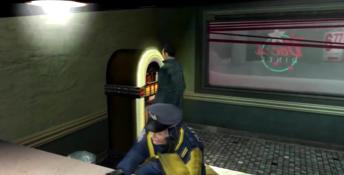
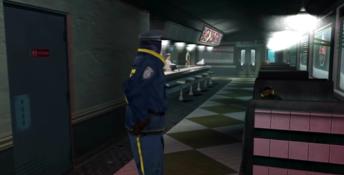
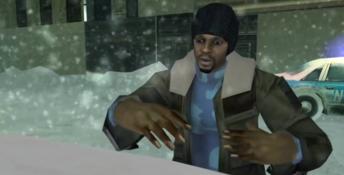








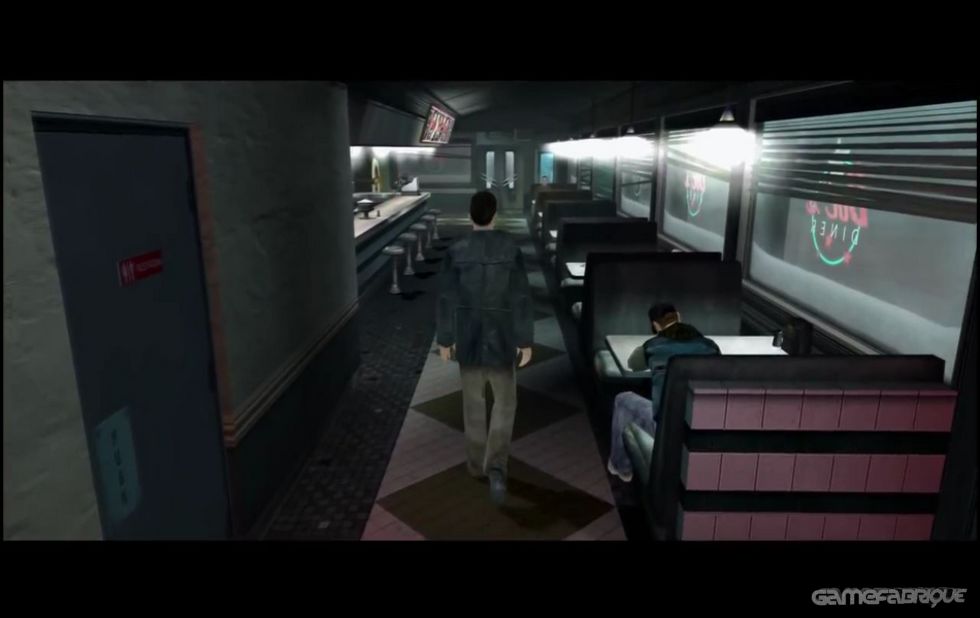






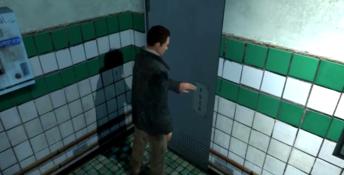
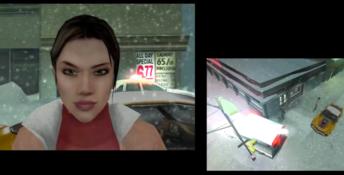
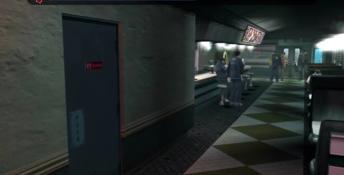
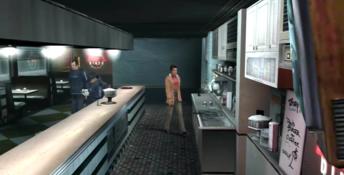
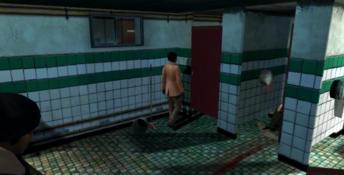
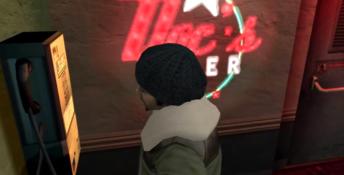
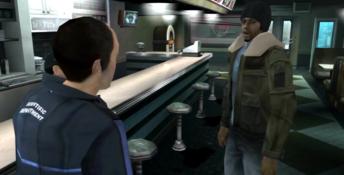
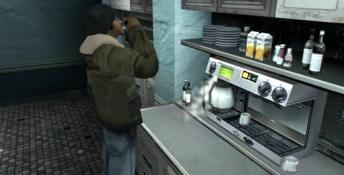
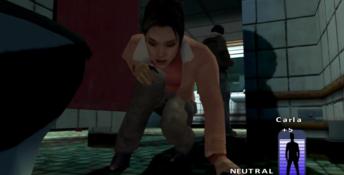
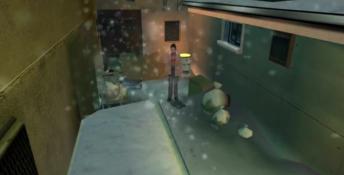
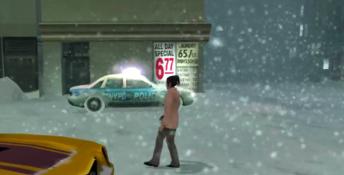
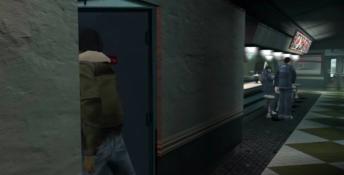
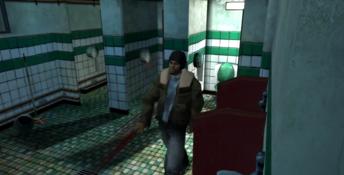

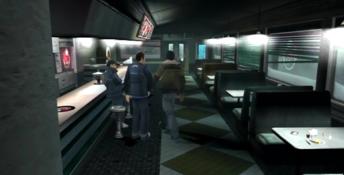
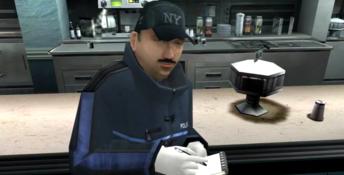
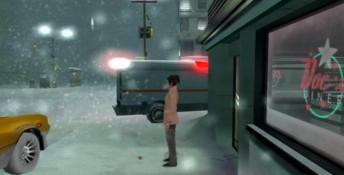

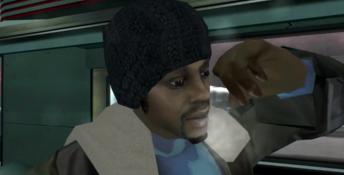
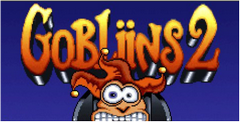 Gobliins 2
Gobliins 2 Jolly Rover
Jolly Rover
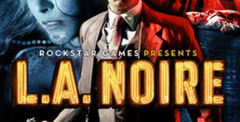 L.A. Noire
L.A. Noire
 Life is Strange: Before the Storm
Life is Strange: Before the Storm
 Secret Files 2: Puritas Cordis
Secret Files 2: Puritas Cordis
 Syberia 3
Syberia 3